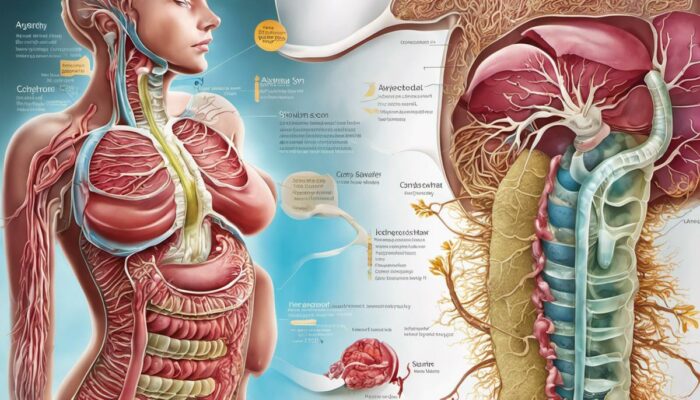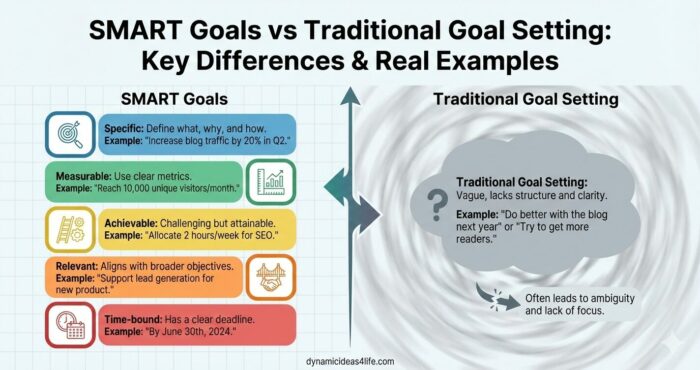
Hypochlorhydria, a condition characterised by low stomach acid levels, presents a unique medical challenge that intertwines physiological processes, dietary habits, and overall lifestyle. Effectively comprehending the intricacies of this condition paves the way for informed management and treatment choices. Venturing into the realm of understanding its causes, diagnosis, and potential complications, we aim to shed light on hypochlorhydria’s effect on our digestive health.
Understanding Hypochlorhydria
Understanding Hypochlorhydria
Hypochlorhydria, commonly referred to as low stomach acid, is a health condition where the body produces insufficient amounts of hydrochloric acid (HCl) in the stomach. The stomach acid plays a vital role in the digestion process. It helps break down food components, particularly proteins, into smaller, digestible substances. Besides digestion, stomach acid aids in nutrient absorption, particularly B12, calcium, iron, and folic acid.
When the stomach’s acid levels are low, the body struggles to effectively digest and absorb essential nutrients from food, leading to malnutrition over time. Several factors could cause hypochlorhydria, including aging, chronic stress, a poor diet, the frequent use of antacids, and certain health conditions such as autoimmune disorders and gastric bypass surgery.
The Symptoms and Potential Complications of Hypochlorhydria
Recognizing the symptoms of hypochlorhydria is important for early detection and treatment. Symptoms can vary between individuals, but commonly they include bloating, burping, upset stomach, nausea, and constipation. Long-term hypochlorhydria may also cause malnutrition, leading to symptoms like hair loss, brittle nails, fatigue, weight loss, and weakened immune function.
Over time, untreated hypochlorhydria can lead to more severe health complications such as gastroenteritis, gastritis, and stomach cancer. This underlines the importance of addressing hypochlorhydria properly and promptly.
Diagnosing Hypochlorhydria
For accurate diagnosis of hypochlorhydria, medical professionals may order a series of tests. Among these is the Heidelberg Stomach Acid Test that measures how quickly the stomach acid pH returns to normal after consuming a bicarbonate solution. Other tests may include blood tests to check for nutrient deficiencies, endoscopy to look for stomach inflammation, or a urine test to measure the amount of undigested protein.
Treating Hypochlorhydria: Ensuring Absorption of Nutrients
The treatment approach for hypochlorhydria is primarily aimed at the elevation of stomach acid levels and amplifying the body’s nutrient absorption capacity. It might involve the prescription of certain medications such as proton pump inhibitors or HCl supplements to manipulate the production of stomach acid.
Modifying dietary habits can play a significant role in this process. Emphasizing smaller, yet frequent meals, eliminating processed food items, and embracing natural, whole foods rich in enzymes can bolster digestion performance.
Additionally, simple lifestyle alterations like maintaining stress levels and engaging in regular physical exercise can have positive influence on the management of hypochlorhydria. It is crucial to note that any treatment process requires proficient supervision from healthcare professionals, ensuring both safety and efficacy.

Lifestyle changes and Natural Therapies
Diet Alterations: An Effective Approach
Effective navigation through hypochlorhydria frequently calls for alterations in dietary habits. Incorporating more acidic foods like lemon juice and vinegar could instigate stomach acid production, hence alleviating symptoms associated with hypochlorhydria. Adopting the habit of consuming smaller, regular meals can also be helpful as it reduces the strain placed upon the digestive system. It’s beneficial to cut down on difficult-to-digest items such as full-fat dairy products and red meat as they might exacerbate the symptoms. Furthermore, it is generally advised to meticulously chew food to enhance the production of stomach acid and promote a smoother process of digestion.
Controlling Stress Levels
Stress can have a prominent effect on stomach acid production. High levels of stress may inhibit the secretion of gastric acid, exacerbating hypochlorhydria. Therefore, managing stress levels through relaxation techniques, yoga, meditation, or other calming practices can potentially help with hypochlorhydria. This type of integrative approach is becoming an increasingly popular method for treating digestion-related disorders.
Increased Intake of Certain Nutrients
Zinc and other nutrients play a significant role in the production of stomach acid. Individuals with hypochlorhydria may benefit from an increased intake of zinc, vitamin B6, and vitamin B1 – all known to support acid production. Consuming nutrient-rich foods like shellfish, legumes, nuts, and whole grains can significantly boost zinc levels. Alternatively, dietary supplements are available to help increase the intake of these critical nutrients.
Natural Supplements and Herbs
Several natural supplements and herbs are popular for relieving the symptoms of hypochlorhydria. For example, bitter herbs such as gentian and wormwood have been found to stimulate the production of stomach acid. Additionally, digestive enzymes can assist in supplementing acid production, while probiotics support the balance of bacteria in the gut and promote overall gut health.
Gastric Health and Hypochlorhydria
Maintaining gastric health is crucial for individuals dealing with hypochlorhydria. Ensuring proper hydration, consuming a balanced and nutrient-rich diet, and maintaining a healthy lifestyle, particularly with proper management of stress, can assist in managing symptoms. Furthermore, consulting with a healthcare provider or a nutritionist can help provide a personalized plan to manage hypochlorhydria, ensuring that treatment is tailored to individual needs and circumstances.
Remember, it’s paramount to seek advice from a healthcare provider prior to initiating any new supplements or significantly altering your dietary habits. In addition, consistently noting and communicating any symptoms to your health professional is crucial in guaranteeing an effective treatment and management of your condition.

Medical Treatment for Hypochlorhydria
Grasping the Concept of Hypochlorhydria
Hypochlorhydria, otherwise known as low stomach acid, is a disorder where the body fails to generate adequate hydrochloric acid (HCL) within the stomach. This shortage in HCL production can result in an array of digestive health complications, such as heartburn, acid reflux, bloating, and even substandard nutrient absorption.
Medical Treatments of Hypochlorhydria
Various treatment options exist for hypochlorhydria, each with a unique angle of approaching the condition. These primarily include the use of proton pump inhibitors (PPIs), hydrogen chloride (HCL) supplements, over-the-counter and prescription medications, and in severe instances, surgical procedures.
Use of HCL Supplements
When there is insufficient hydrochloric acid in the stomach, the direct approach would be to supplement with HCL. The thought behind this treatment is to replace the acidity that the stomach is otherwise lacking.
HCL supplements are typically taken before meals. As digestion progresses, they aid in breaking down proteins and other food compounds. However, caution should be exercised when taking these supplements, as an overdose could potentially increase the acid levels past the desired level, leading to potential discomfort or further complications.
Role of Proton Pump Inhibitors
Developed initially to combat conditions linked with higher stomach acid levels, proton pump inhibitors can also play a vital role in treating hypochlorhydria. Proton pump inhibitors work by blocking an enzyme on the surface of the stomach lining responsible for secreting acid. In doing this, they prevent the production of excessive amounts of stomach acid allowing an inflamed stomach lining to heal. The use of PPI’s in hypochlorhydria is controversial and should be under the consult of a knowledgeable healthcare professional.
Medications and Over-the-Counter Drugs
In some instances, it may be considered effective to protect the stomach lining from the limited but still potentially harmful effects of the diminished acid levels within the stomach. To achieve this, medical practitioners may prescribe medication that builds a protective layer on the tissues lining the stomach.
Over-the-counter drugs, including antacids, are also commonly used to neutralize stomach
Potential Surgical Procedures
For severe cases of hypochlorhydria where medication is ineffective, surgical intervention may be considered. Such procedures might include a gastric bypass, where the stomach is physically shrunk, or a gastrectomy, where part or all of the stomach is removed. Surgical procedure options depend wholly on the severity of the individual’s condition and medical history.
Possible Side Effects and Risks
It is crucial to understand and consider the potential risks of each treatment option. Excessive intake of HCL supplements, for instance, could potentially damage the stomach lining, so dosage guidance is key. PPIs have been associated with an increased risk of bone fractures, vitamin B12 deficiency, magnesium depletion and an elevated risk of infections from bacteria such as C. difficile.
In conclusion, it is vitifically important that hypochlorhydria treatment should be consistently supervised by a credible healthcare professional. A comprehensive solution, which includes alterations to patient diets, employment of supplements, and administration of specific medications, usually provides the most efficacious management pathway for hypochlorhydria.

Living with Hypochlorhydria: Long-term Management
Elucidating Hypochlorhydria and Sustained Management Plans
Hypochlorhydria, commonly referred to as low stomach acid, defines a condition wherein the stomach’s production of hydrochloric acid is deficient. Symptoms may encompass issues such as bloating, heartburn, diarrhoea, varying deficits in nutrient uptake, and diminished resistance against infections. Managing hypochlorhydria long-term mostly involves a amalgamation of dietary modifications, nutritional supplements, and prescribed medications, overseen by qualified healthcare individuals.
Importance of Regular Monitoring and Follow-up Appointments
A crucial part of managing hypochlorhydria is regular monitoring of symptoms and health status. Watchful observation will help in identifying triggers, assessing the effectiveness of treatment protocols, and allow for early detection of potential complications. Regular follow-up appointments are a key factor in effectively managing this chronic condition. A healthcare provider can assess treatment effectiveness, make necessary adjustments, and provide consistent support and guidance.
Dealing with Flare-ups
Flare-ups of hypochlorhydria symptoms can occur, which might involve bloating, discomfort, and digestive issues. The key to managing these flare-ups lies in recognizing the signs at the outset and implementing previously effective strategies. Over-the-counter antacids might offer quick relief; however, long-term reliance on these without proper medical consultation is not advised due to potential side-effects. Practices such as mindful eating, smaller portion sizes, and avoiding trigger foods can also be helpful during such episodes.
Tips for Managing Daily Activities
Daily management of hypochlorhydria can become more manageable with some small alterations to routine. Regular exercise, maintaining a balanced diet, staying properly hydrated, and getting quality sleep are fundamental, as they help to maintain a healthy digestive system. Foods rich in zinc, B-vitamins, and proteins can potentially aid in the restoration of stomach acid production. Furthermore, stress management techniques like yoga and meditation can be beneficial, as stress is known to negatively impact digestion.
Effective Communication with Healthcare Providers
Honest and open communication with healthcare providers is essential for effective management of hypochlorhydria. Clearly expressing symptoms, discomfort, and concerns will help them understand the condition’s effect on the individual’s lifestyle. It’s also important to freely ask questions about the condition, treatment options, potential complications, and any other areas of concern. Maintaining a dialogue with the healthcare provider helps ensure that the patient has a clear understanding of their condition and feels empowered in managing their health.
Hypochlorhydria and Treatment Plans
A treatment plan for hypochlorhydria typically involves a dietary plan, potential supplementation, and sometimes medication. It’s important to remember that alterations may be necessary over time as symptoms and conditions change. Patience is essential during this process, as improvements may occur gradually. And remember, each individual is unique, so what works for one person may not work for another. It’s important to stay positive, be patient, and remain active in seeking what works best for you.

Consequently, whilst hypochlorhydria can be an intricate condition to manage, it’s far from unconquerable. Attention to lifestyle modifications, adopting natural therapies, and pursuing suitable medical treatments can help maintain gastric health. Additionally, a proactive approach that consists of steady monitoring, scheduled follow-ups, and effective communication with healthcare providers can all play instrumental roles in managing hypochlorhydria effectively. Take courage, understand and navigate this journey with confidence, and fortify your daily life with the knowledge imparted.






Anxiety and Depression BiOptimizers blood pressure supplements blood sugar control blood sugar support supplements cognitive function digestive enzymes Digestive Enzymes Supplement digital products Dr Sam Robbins Gut Health Gut Health While Travelling Health Tips for Travelling Healthy Living heart health HFL how to lower blood sugar levels How To Lower Cholesterol insulin resistance joint health supplement Keto keto dieting Keto Diet Weight Loss leaky gut supplements leptin resistance Magnesium deficiency Matt Gallant mental health multivitamins Nootopia Nootropics Probiotics Probiotic Supplements reverse type 2 diabetes stress and anxiety stress relief Supplements vitabalance vitapost Wade Lightheart weight loss articles weight loss diet plans weight loss product reviews weight loss supplements weight loss tea





